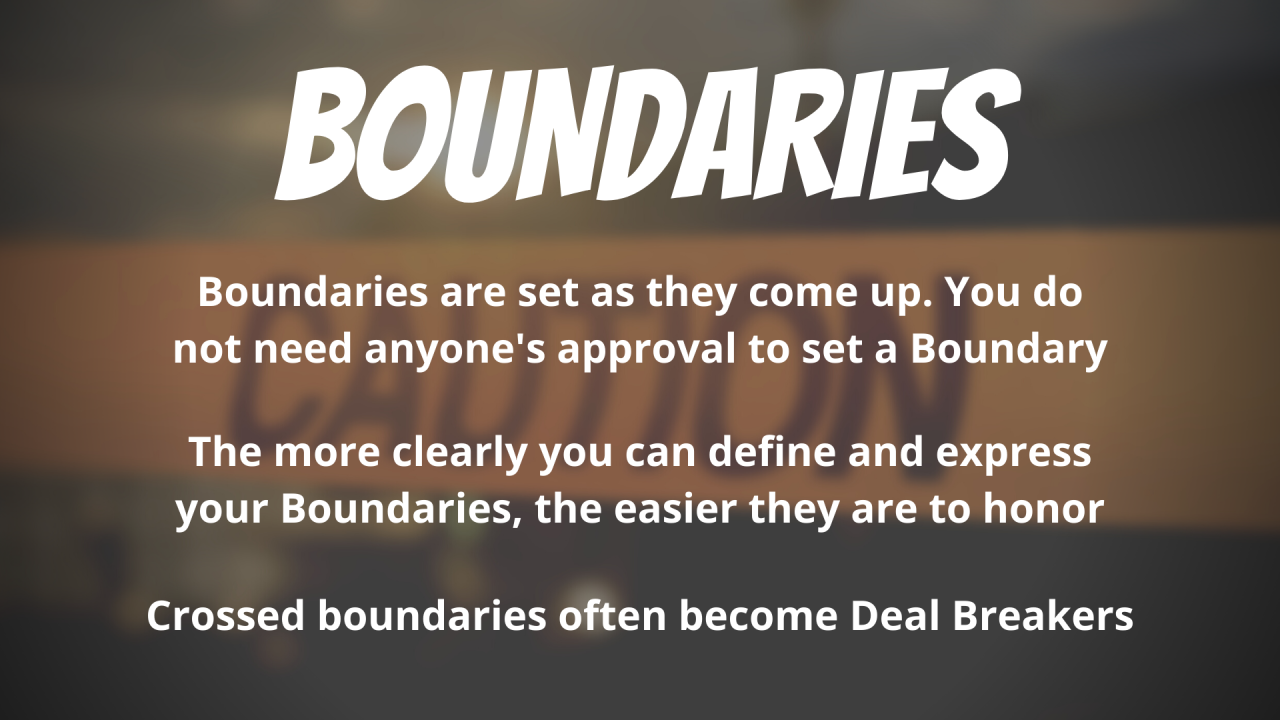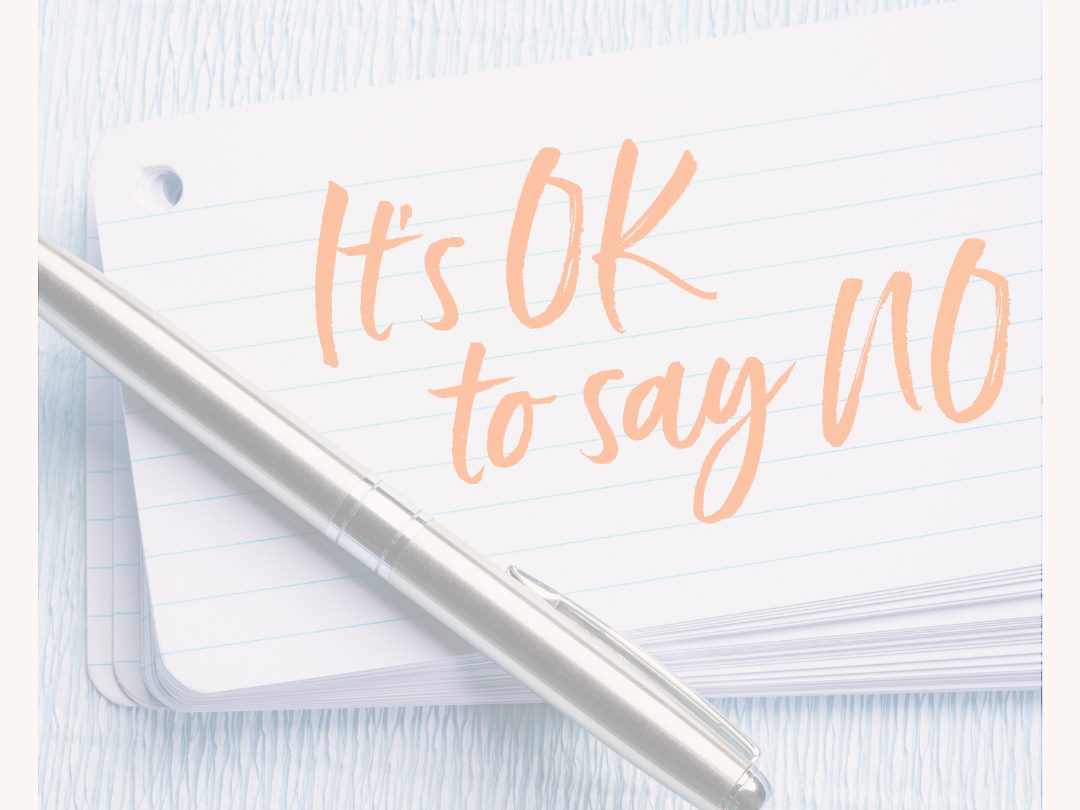
How to Set Boundaries Without Feeling Guilty
Setting boundaries is essential for maintaining a healthy balance in life. However, many people feel guilty when they establish them. This is a natural response, but it doesn’t have to control your actions. By understanding the importance of boundaries and learning how to set them with confidence, you can protect your well-being without the burden of guilt. Here’s how to set boundaries without feeling guilty.

Recognize the Importance of Boundaries
First, acknowledge that boundaries are not selfish. In fact, they are necessary for self-care and mental health. Boundaries help you preserve your energy and prioritize your needs. When you set limits, you show respect for yourself and others. You can’t be your best version if you constantly overextend yourself. Therefore, understand that boundaries are a form of self-respect.
Remember That Boundaries Are for Everyone
Often, people feel guilty because they believe they are letting others down. However, boundaries benefit everyone. When you are clear about your needs, you teach others how to treat you. This fosters healthier relationships. Moreover, by maintaining your boundaries, you become more present and engaged when you choose to interact. Therefore, setting boundaries contributes to better communication and stronger relationships.
Challenge Feelings of Guilt
Guilt often arises when we feel that we are disappointing others. However, it’s important to challenge these feelings. Ask yourself: Are you really letting someone down, or are you simply not meeting their expectations? Setting boundaries isn’t about being selfish; it’s about taking care of your needs. If you feel guilty, remind yourself that it’s okay to say no and prioritize your own well-being.
Identify Your Needs
Before setting boundaries, identify what you truly need. Ask yourself what you are comfortable with and what drains you. Reflect on past situations where you felt overwhelmed. What could have been different? Understanding your limits is crucial. For instance, if you feel drained after long social events, setting a boundary about how much socializing you can handle will help you recharge.
Be Clear and Direct
When communicating your boundaries, be clear and direct. Vague statements often lead to confusion. It’s helpful to use “I” statements. For example, say, “I need some time alone to recharge,” instead of “You’re too much for me right now.” By being specific, you avoid misinterpretation. Clarity makes it easier for others to respect your boundaries.
Practice Saying “No”
One of the hardest parts of setting boundaries is learning how to say “no.” It’s important to remember that saying “no” does not make you a bad person. In fact, it shows that you value your time and energy. Practice saying no in different situations. Start small by declining invitations or requests that don’t align with your needs. Over time, you will become more comfortable. And, most importantly, you will learn to say no without feeling guilty.
Anticipate Reactions
People may not always understand or appreciate your boundaries. They may feel disappointed or frustrated. However, it’s important to stay firm. Recognize that their feelings are not your responsibility. While it’s okay to acknowledge their emotions, don’t let them change your decision. In time, they will respect your boundaries. Therefore, prepare yourself mentally for potential reactions and remain confident in your choices.

Set Boundaries Consistently
Consistency is key when it comes to boundaries. If you set a boundary once but don’t enforce it consistently, people will learn to disregard it. For example, if you say you need time for yourself but then repeatedly give in to requests, your boundaries will lose their effectiveness. Consistently enforcing your limits reinforces your commitment to self-care. It also shows others that you are serious about your well-being.
Be Compassionate with Yourself
Setting boundaries is a learning process. Sometimes, you may slip up or feel uncertain. That’s normal. Be kind to yourself when you feel guilty. Recognize that guilt doesn’t have to control your actions. Instead, use it as an opportunity for growth. Remind yourself that setting boundaries is an act of self-care, not selfishness. With practice, it will become easier to set limits without guilt.
Seek Support
If you’re struggling with guilt, seek support from others. Talk to friends or a therapist about your experiences. They can offer encouragement and help you build confidence in setting boundaries. Often, knowing that others share similar struggles can make you feel less isolated. Surrounding yourself with people who understand and support your boundaries can be incredibly helpful.
Embracing Positive Change
As you continue to set boundaries, you’ll notice positive changes in your life. For example, you’ll have more time for the things that truly matter to you. With each boundary you enforce, you’ll feel more in control. Furthermore, you’ll develop a stronger sense of self-worth. This shift will help you stop feeling guilty, as you begin to understand that taking care of yourself is just as important as caring for others. Eventually, it will become second nature, and you’ll feel empowered rather than burdened by your boundaries.
Practicing Patience with Yourself
Additionally, be patient with yourself throughout this process. Change takes time, and setting boundaries can be challenging, especially at first. However, remember that progress is made one step at a time. With persistence, you’ll grow more comfortable. Over time, you’ll see that boundaries are not barriers but bridges to a healthier, more balanced life. Therefore, stay committed, and trust that you’re moving in the right direction.
Reinforce Your Boundaries Regularly
As time passes, your needs may change. Therefore, it’s important to regularly assess and adjust your boundaries. Revisit them when necessary. Be flexible, but also be firm in maintaining what’s best for your well-being. Regularly reinforcing your boundaries will keep them strong and prevent guilt from creeping in.

Conclusion
Setting boundaries is a powerful tool for preserving your well-being. While it may initially feel uncomfortable or guilt-inducing, over time, you’ll find it easier and more natural. Remember that boundaries are a sign of self-respect, not selfishness. By being clear, consistent, and compassionate with yourself, you’ll build healthier relationships and protect your energy. So, start today—set your boundaries and embrace the freedom that comes with respecting your own needs.






